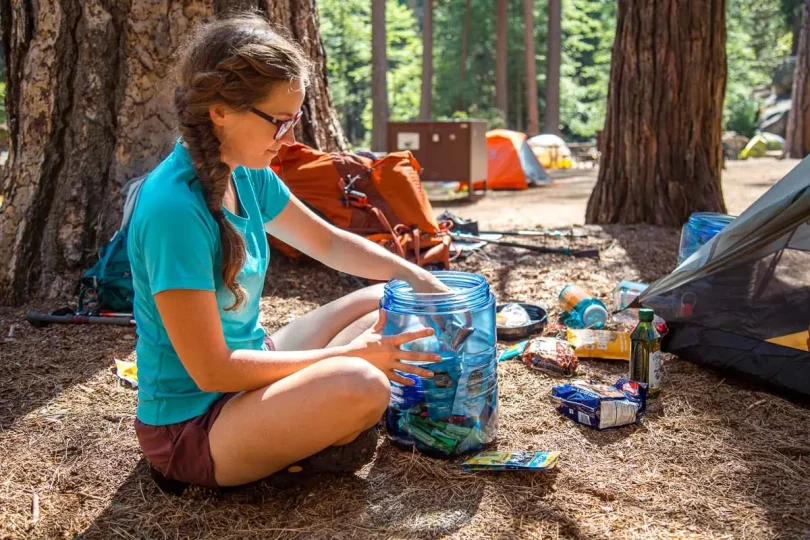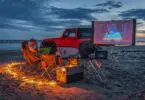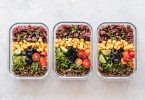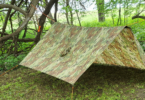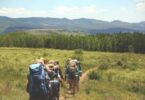Setting up camp can be a good and remunerating experience for the entire family, however pressing for the large excursion can be troublesome. Specifically, pressing meals can without much of a stretch transform into a problem for various reasons.
Attempting to get all of the meals to fit together in as little space as conceivable can seem like it takes a minor act of God, yet it doesn’t need to. Coming up next are a few extraordinary tips to begin pressing your setting up camp meals like an ace. One great idea to store meals is in bear canisters, if you want to know more about them, head over to bearvault.com.
1. Chill as much as you possibly can
Ice forms and containers can occupy a great deal of room in your cooler, so attempt to chill however much of it as could reasonably be expected to serve twofold obligation as ice packs. The prior night you pack, perceive the number of your meals can be securely chilled.
Along these lines, the non freezable foodstuffs will be kept cold by the freezing meals, implying that you won’t need to go through as much space with ice packs or 3D shapes.
2. Eliminate Meals From Packs
Not all meals need to remain in their unique bundling, particularly many dry merchandise. Sort through your edibles and see what can securely be eliminated from its bundling to diminish the space it takes up.
Make certain to figure out what might occur in the event that the meal gets wet and how lengthy you will camp before you eliminate it from its holder.
3. Store in Stacks
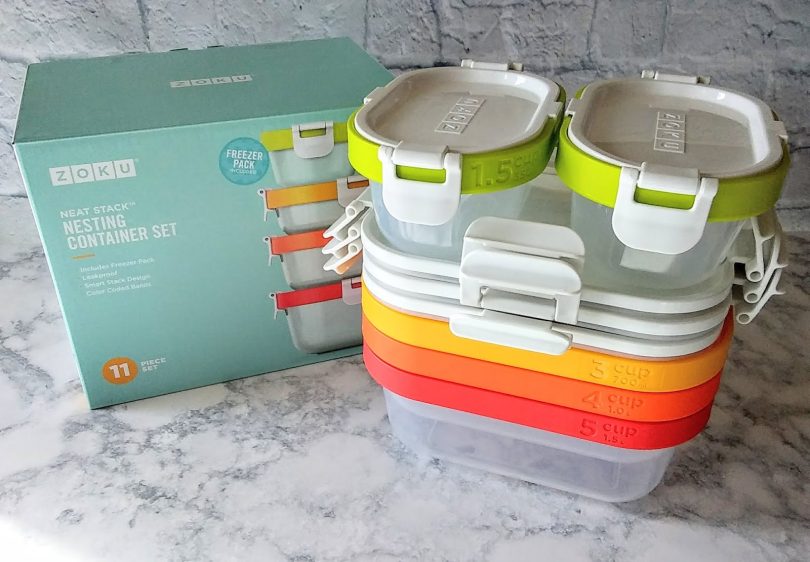
Source: momknowsbest.net
While setting up camp, it is ideal to have an essential feast plan together to decide when you will eat what meal. This can likewise assist you with pressing edibles in layers, where you will have simple admittance to the meals that you will utilize first.
This can save you a great deal of time and dissatisfaction during the campout, and it is consistently smart to restrict any potential wellsprings of stress while setting up camp.
4. Divide the dry goods from the refrigerated items
This tip is significant for keeping your edibles new and palatable, as wet food varieties and dry food sources don’t combine well when put away as one. Wet and cold edibles varieties can make buildup or should be kept virus by ice which thus can prompt your dry edibles sources to get wet. Ensure you prepare and pack edibles independently to restrict the opportunity of this incident.
5. Utilize Proper Receptacles
Not your meals should be put away in coolers and putting away various edibles sources in additional fitting containers is absolutely fine. For instance, you ought to store snacks in a holder that is effectively open without digging through fixings and coolers. Further, on the off chance that you can’t top off a compartment with edibles, consider choosing a more modest one, particularly since you should accept even less home with you.
6. Make sure to Take a Bear Canister
Food capacity for campers is significant, which is the reason we suggest bear canisters. However these canisters are really costly, they are exceptionally viable in getting critters far from your edibles. These great canisters are impenetrable and strong. Assuming you secure your food in those holders during the day, you’ll prevail with regard to keeping rodents and other troublesome creatures under control. Around evening time you’ll have to move the compartment essentially 100 feet from your tent-for good measure.
7. Actually look at guidelines
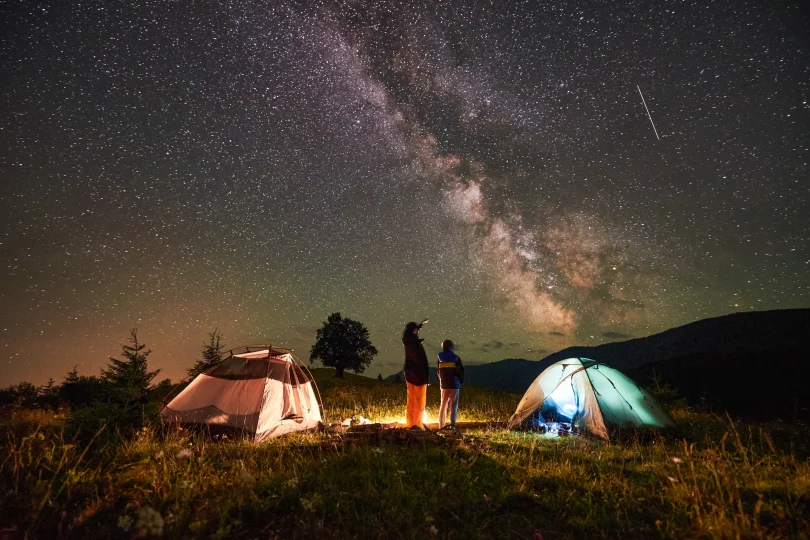
Source: cntraveler.com
Before you leave for that long-arranged, epic backwoods hiking experience, ensure you grasp the neighborhood rules and guidelines. Numerous public kinds of wood, state parks, and wild regions presently expect hikers to utilize hard-sided bear-evidence compartments to convey and store edibles.
The guidelines are set up to forestall backwoods experiences between animals, both dark and grizzly, and people. They can become acclimated to camping areas and return as often as possible hoping to find extra edibles or simple admittance to food packs or unstable coolers. Giving cautious consideration to how you pack and store food, subsequently, will assist with keeping both you and the recreation area’s natural life safe. At the point when you keep the guidelines, you likewise make your campground more secure for the following individuals visiting that park.
8. Aim to refrain from leaving food out unsupervised during the daytime
The last thing you need is to get back from a long climb and find your edibles supply has been scoured. Since it’s in a locked cooler doesn’t mean it’s protected from venturesome creatures like raccoons. On the off chance that you’re not cooking it or eating it at that point, your food ought to be taken care of in a solid area.
9. Keep the food out of the camp at night
Never keep meals in your tent, particularly around evening time. Putting away your edibles in your vehicle is really smart in certain areas. In any case, in others, where the animals and other natural life are known to break into vehicles, camping areas will give campers secure areas for food capacity, similar to metal storage spaces. A decent guideline is to keep all meals and food squander no less than 80 yards from where you rest.
10. Maintain Ice in Refrigerators
Transient things should be maintained at 50 F or less to hold back from ruin. Prior to stacking your compartment, take a stab at chilling it for 50 minutes; that gives you an early advantage. And on second thought of sacks of ice to keep things chilly, fill reusable water containers, freeze and use them all things considered. The ice-filled jugs will endure longer than free ice lumps. Also, whenever they’ve liquefied, you’ll have chilled drinking water all set.
Wrapping Up
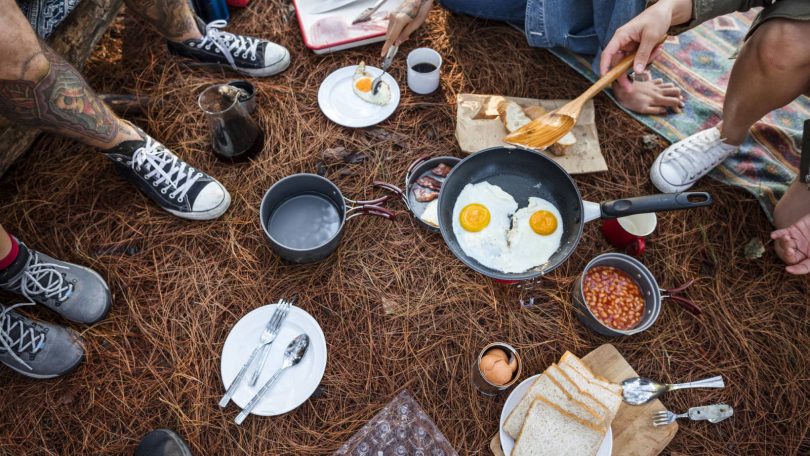
Source: yardbarker.com
There are a lot of difficulties that accompany meal capacity while investing energy outside on exploring trips or while setting up camp. You need to consider your environmental factors and what gear you will approach so that you’re more ready to securely store your meals. Rehearsing great cleanliness, in any event, when preparing meals outdoors is significant. Be wary of grizzlies and other natural life and consistently store your meals at safe temperatures to forestall meals -borne illnesses. This was all for today. Utilize these tips and save yourself some trouble.

